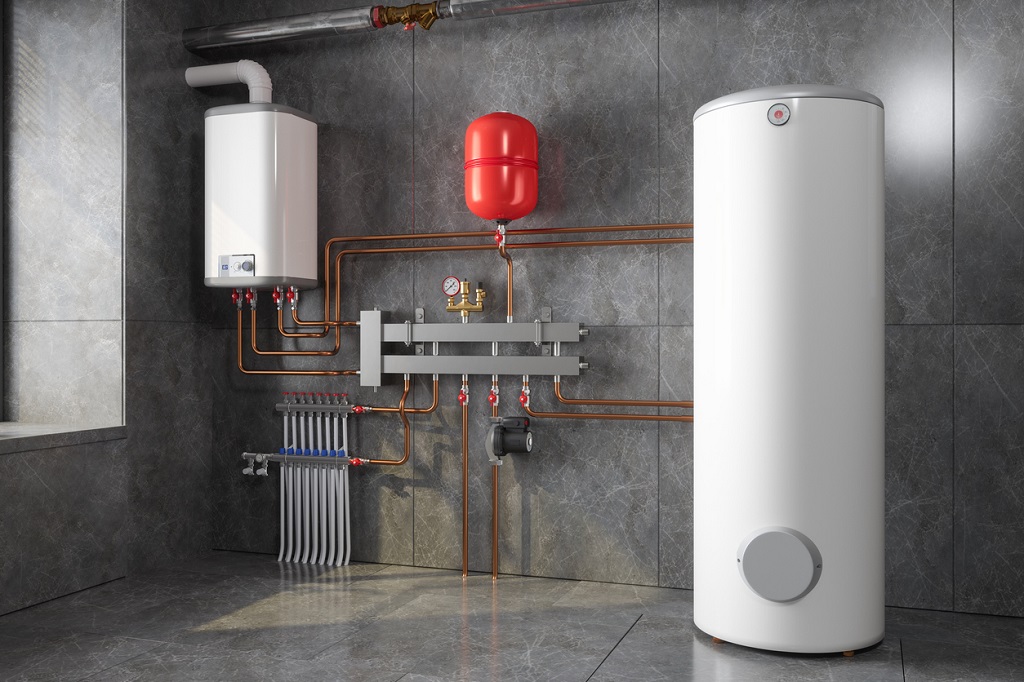.jpg)
Understanding Electric Hot Water Heaters
An electric hot water heater is a common appliance found in many homes, providing a reliable source of hot water for various needs. Unlike gas water heaters, they use electricity to heat water, making them a versatile option for homes without gas lines. This guide will explore the different types, benefits, and considerations when choosing an electric hot water heater.
Types of Electric Hot Water Heaters
There are several types of electric hot water heaters available, each with its own set of features and benefits:
-
Storage Tank Heaters: These are the most common type, storing a large volume of hot water ready for use. They maintain a consistent temperature and are generally more affordable upfront.
-
Tankless Heaters (On-Demand): These heaters heat water only when needed, providing an endless supply of hot water. They are more energy-efficient but typically have a higher initial cost.
-
Heat Pump Water Heaters: These are highly energy-efficient, using heat from the air or ground to heat water. They can significantly reduce energy consumption but may have a higher upfront cost and require specific installation conditions.
-
Hybrid Water Heaters: These combine features of storage tank and heat pump models, offering a balance of efficiency and storage capacity.
Benefits of Electric Hot Water Heaters

Electric hot water heaters offer several advantages:
-
Easy Installation: They don't require gas lines, making installation simpler and potentially less expensive.
-
Versatility: They can be installed in various locations, as long as there is an electrical connection.
-
Safety: They eliminate the risk of gas leaks and carbon monoxide emissions.
-
Energy Efficiency: Modern electric models, especially tankless and heat pump types, are highly energy-efficient.
Factors to Consider When Choosing an Electric Hot Water Heater
Selecting the right electric hot water heater involves considering several factors:
-
Capacity: Determine the amount of hot water your household typically uses to choose the appropriate tank size or flow rate for tankless models.
-
Energy Efficiency: Look for models with high Energy Factor (EF) ratings to minimize energy consumption and costs.
-
Installation Space: Ensure you have sufficient space for the chosen model, considering both the unit's dimensions and any required clearances.
-
Budget: Consider both the initial purchase price and long-term operating costs.
-
Household Size: Larger households will need larger capacity water heaters.
-
Local Climate: Heat pump water heater performance is impacted by ambient air temperature.

Installation and Maintenance
Proper installation is crucial for the efficient and safe operation of your electric hot water heater. It's often recommended to hire a qualified electrician or plumber for installation. Regular maintenance can extend the lifespan of your heater and ensure optimal performance. Key maintenance tasks include:
-
Flushing the Tank: Periodically flushing the tank removes sediment buildup, which can reduce efficiency and lifespan.
-
Checking the Anode Rod: The anode rod protects the tank from corrosion and should be inspected and replaced as needed.
-
Inspecting Electrical Connections: Ensure all electrical connections are secure and free from corrosion.
-
Testing the Temperature and Pressure Relief Valve: This valve prevents excessive pressure buildup and should be tested regularly.
Energy Efficiency Tips

To maximize energy efficiency and reduce operating costs:
-
Insulate the Tank: Adding insulation to storage tank heaters can reduce heat loss.
-
Lower the Thermostat: Setting the thermostat to 120°F (49°C) is generally sufficient for most households and can save energy.
-
Use Low-Flow Fixtures: Installing low-flow showerheads and faucets can reduce hot water consumption.
-
Repair Leaks: Promptly repair any leaks to prevent water and energy waste.
-
Consider a Timer: For some storage tanks, you can set the tank to only heat during peak usage times.
Conclusion
Choosing the right electric hot water heater can significantly impact your home's comfort and energy efficiency. By understanding the different types, benefits, and considerations, you can make an informed decision that meets your specific needs. Regular maintenance and energy-saving practices will ensure your heater operates efficiently for years to come.
No comments:
Post a Comment
Note: Only a member of this blog may post a comment.